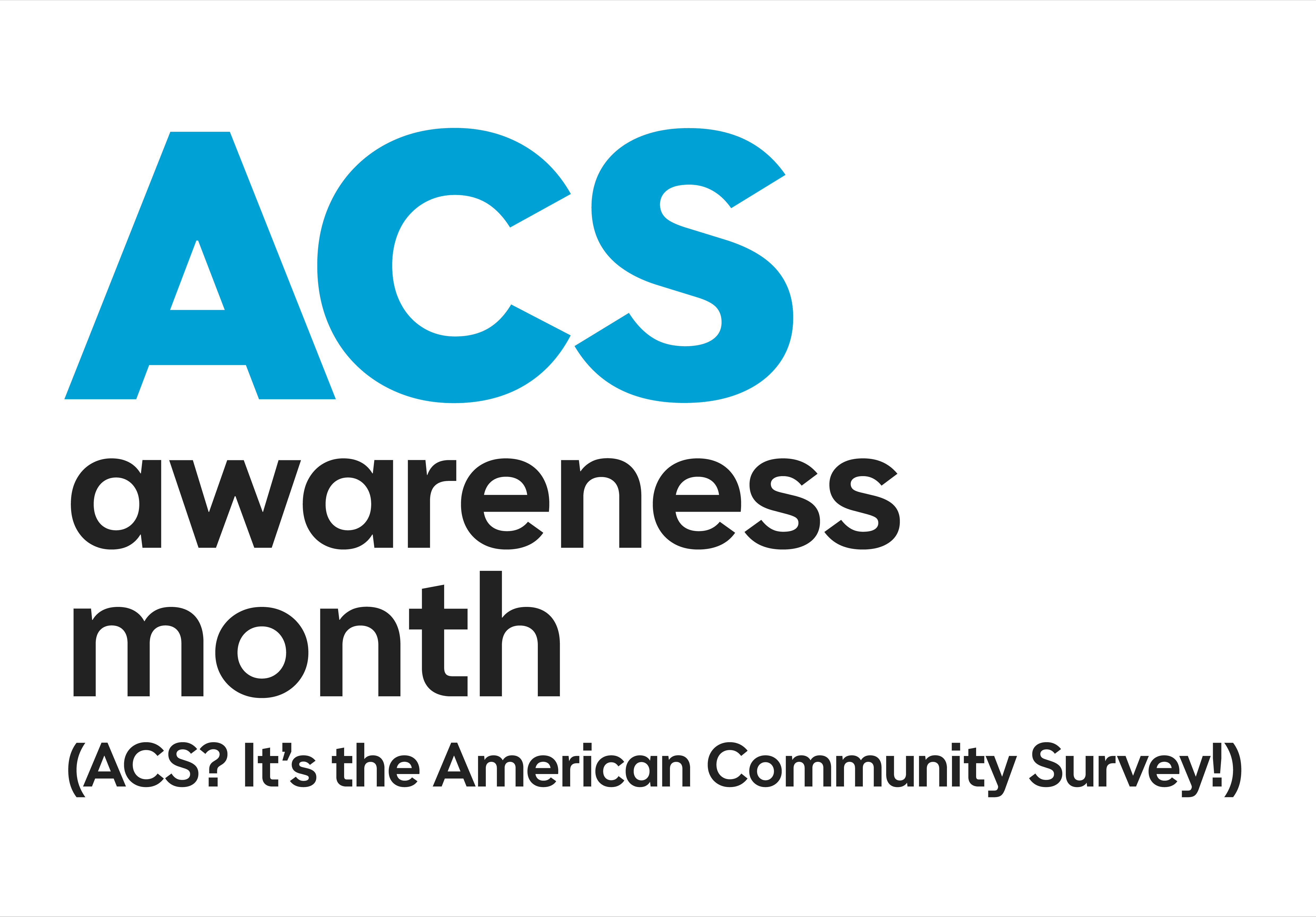
ACS Almanac
The ACS Almanac contains important information on why each question is asked on the American Community Survey. Every question has a required purpose and many uses that help policymakers, researchers and community-based organizations help our communities.
Note: In March 2024, the U.S. Office of Management and Budget announced updates to Statistical Policy Directive No. 15 (Directive No. 15): Standards for Maintaining, Collecting, and Presenting Federal Data on Race and Ethnicity, the first since 1997. These changes are expected to be implemented in the American Community Survey and the decennial census questionnaire.
Why does the ACS ask about…
Source: U.S. Census Bureau – Why We Ask Each Question
Click any topic below to jump to an overview and access more resources from the U.S. Census Bureau.
Why does the ACS ask about…
Source: U.S. Census Bureau – Why We Ask Each Question
Acreage and Agricultural Sales
Housing Questions: 4, 5Acreage and agricultural sales data help communities:
- Provide Equitable Housing Assistance
- We ask about acreage and agricultural sales to help federal agencies fairly distribute funds from assistance programs.
- Support Agricultural Programs
- Plan Community Development: Knowing the size and agricultural nature of areas of each community can help communities:
- Understand changes in local housing markets.
- Identify opportunities to improve tax, assistance, and zoning policies.
- Reduce tax revenue losses from vacant or abandoned properties.
Age and Date of Birth
Person Question: 4Age and date of birth data help communities:
- Provide Assistance to Older Americans, such as financial assistance with utilities (Low Income Home Energy Assistance Program).
- Provide Assistance to Children and Families, such as Medicaid and Children’s Health Insurance Program (CHIP).
- Educate Children and Adults
- Ensure Equal Opportunity
Ancestry
Person Question: 13Ancestry data help communities:
- Ensure Equal Opportunity
- For example, ancestry data are used to:
- Enforce nondiscrimination in education (including monitoring desegregation).
- Enforce nondiscrimination in employment by federal agencies, private employers, employment agencies, and labor organizations.
- Enforce laws, regulations, and policies against discrimination in federal financial assistance (Civil Rights Act of 1964).
- For example, ancestry data are used to:
- Understand Change
- For example, ancestry data are used with age and language data to address language and cultural diversity needs in health care plans for the older population.
Commuting and Journey to Work
Person Question: 31-35Commute data helps communities:
- Develop transportation plans and services
- Plan programs and services for disabled populations, bicycle commuters, carpools, and ride shares.
- Ensure compliance with various regulations.
- Forecast future transportation needs.
- Understand where people are traveling in the course of a normal day.
- Employment planning.
- Protection against employment discrimination.
- Planning emergency response.
- Businesses can use this data to determine the best locations for them.
- Understanding how commuting affects us
- To study the effects of long commutes on our health and the environment.
Computer and Internet Use
Housing Question: 9-11Computer and internet use data help communities:
- Ensuring that residents are connected to assistance programs, emergency services, and important information.
- Understand whether to use the internet or more expensive outreach methods for distributing important public health or safety information.
Disability
Person Question: 18-20Disability data help communities:
- Understand whether available housing meets the needs of residents in local communities. If housing is not sufficient/affordable, disability data helps communities.
- Enroll eligible households in programs designed to assist them.
- Qualify for various grants and other local and federal programs.
- Provide Healthcare to children and families by enrolling eligible families in programs such as Marketplace, Medicaid, and the Children’s Health Insurance Program (CHIP)
- Ensure equal opportunity by helping governments and communities enforce laws, regulations, and policies against discrimination on the basis of disability status.
- Disability data can determine whether there are health care or public health care program disparities on the basis of disability status.
- Help local officials provide programs and services that help older Americans live safely in their homes/communities. (Older Americans Act)
- Provide services and assistance to people with disabilities.
- Inform researchers, advocacy groups, and policymakers on whether people with disabilities have equal opportunity.
- Ensure communities can meet needs during weather events, disasters, and public health emergencies.
Educational Attainment, Undergraduate Field of Degree
Person Questions: 11, 12Educational attainment, undergraduate field of degree data helps communities:
- Educate children
- Help schools understand the needs of adult students who don’t have a high school diploma, and get grants for programs that help these students.
- Enable efforts to develop the nation’s STEM labor force.
- Ensure equal opportunity.
Employment Status
Person Questions: 30-39Employment status data helps communities:
- Plan and fund government programs that provide unemployment assistance and services
- Provide employment opportunities.
- Identify areas with people available for hiring and training.
- Plan workforce development programs, including job fairs and training programs.
- Promote business opportunities.
- Ensure equal opportunity
- Ensure that government programs and policies fairly and equitably serve the needs of all groups.
- Enforce laws, regulations, and policies against employment discrimination
Family and Relationship to Householder
Person Question: 2Relationship data helps communities:
- Provide adequate housing
- Knowing how many people in households are related, in addition to household income and housing costs, helps communities understand if housing is affordable and meets residents’ needs.
- Enroll eligible households in helpful programs.
- Qualify for grants, including:
- Community Development Block Grant (CDBG)
- HOME Investment Partnership Program
- Emergency Solutions Grant (ESG)
- Housing Opportunities for Persons with AIDS (HOPWA)
- Provide assistance to families
- Enroll eligible families in helpful programs, like Head Start and the Children’s Health Insurance Program (CHIP).
- Evaluate programs like Temporary Assistance for Needy Families (TANF).
- Understanding changing households
Fertility
Person Question: 25Fertility data help communities:
- Provide health care to children and families
- Understand changing households
- Fertility data, among other statistics, helps to understand potential impacts on housing, public health, and pollution.
- Plan government programs
- Project the future size of the population.
Food Stamps Benefit
Housing Question: 15Food Stamp/SNAP data help communities:
- Provide food assistance to school children
- Ensures programs like the National School Lunch Program and School Breakfast Program are still running.
- Evaluate SNAP
- Understand changes in food assistance needs
Grandparents as Caregivers
Person Question: 18-20Grandparents as caregivers data help communities:
- Provide assistance to families
- This information helps communities enroll eligible families in programs like the Children’s Health Insurance Program (CHIP) and helps communities qualify for grants to fund these programs.
- Provide assistance programs to older Americans
- Understanding changing households
- Helps communities understand if available housing and services are meeting residents’ needs.
Health Insurance Coverage
Person Question: 16, 17Health insurance coverage data help communities:
- Provide Assistance to Children and Families
- Help communities enroll eligible families in programs designed to assist them, like Marketplace, Medicaid, and the Children’s Health Insurance Program (CHIP).
- Provide Health Care for Veterans
- Provide Health Care for American Indians
- Understanding Changes helps leaders
- Identify gaps in community services.
- Plan programs that address those gaps.
- Qualify for funding for those programs.
Hispanic Origin
Person Question: 5Ethnicity data help communities:
- Ensure Equal Opportunity
- Ethnic data, among other statistics, help governments and communities enforce anti-discrimination laws, regulations, and policies.
- Monitor compliance with the Voting Rights Act and enforce bilingual election requirements.
- Monitor and enforce equal employment opportunities under the Civil Rights Act of 1964.
- Identify segments of the population who may not be getting needed medical services under the Public Health Service Act.
- Understand Change
- Understanding if people of Hispanic and non-Hispanic origin have the same opportunities in education, employment, voting, and home ownership.
Home Heating Fuel
Housing Question: 13Home heating fuel data help communities:
- Provide Assistance With Utilities
- Helps communities enroll eligible households in assistance programs like the Low Income Home Energy Assistance Program and qualify for grants.
- Estimate Future Energy Demand
- Measure Environmental Impacts
- Data used to develop the national aggregate emissions of each greenhouse gas and to research and report on the relationships among different development patterns and public health and pollution (Clean Air Act, Clean Water Act).
Housing Costs for Owners
Housing Questions: 14, 16, 20, 21, 22, 23, 24Housing costs for owners data help communities:
- Provide Adequate Housing
- Understand whether housing is affordable for residents.
- Enroll eligible households in programs designed to assist them.
- Qualify for grants from the Community Development Block Grant (CDBG), HOME Investment Partnerships Program, Emergency Solutions Grants (ESG), Housing Opportunities for Persons with AIDS (HOPWA), and other programs.
- Plan Community Development
- Understand changes in local housing markets.
- Identify opportunities to improve tax, assistance, and zoning policies.
- Ensure Equal Opportunity
- Help the government and communities enforce laws, such as the 1968 Fair Housing Act, designed to eliminate discrimination in housing.
Income
Person Questions: 43, 44Income data help communities:
- Provide Adequate Housing
- Understand whether housing is affordable in local communities.
- Enroll eligible households in assistance programs.
- Qualify for grants from the community development programs.
- Provide Assistance to Older Americans
- Know poverty status and age and disability status to help communities ensure older people receive appropriate assistance.
- Provide Assistance to Children and Families
- Income data determines eligibility and funding in programs like Medicaid, the Child and Adult Care Food Program, and Head Start.
- Educate Children and Adults
- School districts make long-term building, staffing, and funding decisions based on how many children and adults depend on services.
- Plan Community Development
- Qualify communities for loan and grant programs designed to:
- Stimulate economic recovery
- Improve housing
- Run job training programs
- Define areas as empowerment or enterprise zones
- Qualify communities for loan and grant programs designed to:
Industry, Occupation, and Class of Worker
Person Question: 42Industry, occupation, and class of worker data help communities:
- Provide Employment Opportunities
- Evaluate if programs designed to employ specific groups, such as people with disabilities or veterans, are succeeding.
- Identify areas with people available for hiring and training.
- Plan workforce development programs
- Ensure Equal Employment Opportunity
- Help governments and communities enforce civil rights laws against employment discrimination (Civil Rights Act of 1964).
- Understand Changes
- Information on growing or declining industries and occupations helps estimate changes in the economy.
Language Spoken at Home
Person Question: 14Language spoken at home data help communities:
- Educate children
- Help schools understand the needs of their students and qualify for grants.
- Ensure equal opportunity
- Help the government and communities enforce laws and policies against discrimination based on national origin.
- Evaluate whether individuals who speak languages other than English have the same opportunities.
Marital Status and Marital History
Person Questions: 21-24Marital status/marital history data help communities:
- Provide Benefits to Spouses and Survivors
- Provide Assistance to Families
- Help federal agencies plan and fund programs with spousal benefits, including veteran and social security programs.
- Help communities determine where gaps in benefits and services might exist.
- Provide Assistance to Families
Name
Person Question: 1Name data help researchers:
- Keep track of which person they are answering for if the names are used
- Help administration call to collect missing information or ask for clarification
- By having the name of each household member, we can more easily refer to specific information.
Ownership, Home Value, Rent
Housing Questions: 17-19Ownership, home value, and rent data help communities:
- Provide Adequate Housing
- Understand whether available housing meets the needs of residents.
- Enroll eligible households in assistant programs.
- Qualify for housing grants.
- HUD uses rent data to determine the amount of tenant subsidies in housing assistance programs
- Plan Community Development
- Understand changes in local housing markets.
- Identify opportunities to improve tax, assistance, and zoning policies.
- Determine housing assistance funding (Fair Market Rents).
- Ensure Equal Opportunity
- Enforce laws designed to eliminate discrimination in housing, such as the 1968 Fair Housing Act.
Place of Birth, Citizenship, Year of Entry
Person Questions: 7-9Place of birth, citizenship, and date of entry data help communities:
Ensure Equal Opportunity
Help enforce laws, regulations, and policies against discrimination based on national origin
Educate Children
Help schools understand the needs of students and qualify for grants that help fund programs
Understand Change
Evaluate whether people of different races or countries of birth have the same opportunities in areas such as education, employment, and home ownership
Plumbing Facilities, Kitchen Facilities, Telephone Service
Housing Questions: 7, 8Plumbing facilities, kitchen facilities, and telephone service data help communities:
- Provide Adequate Housing
- Enroll eligible households in assistance and qualify for grants if housing is unaffordable or not sufficient.
- Plan Community Development
- Improve tax, assistance, and zoning policies.
- Ensure Residents Can Communicate
- Measure Environmental Impacts from Plumbing Systems
Race
Person Question: 6Race data help communities:
- Ensure Equal Opportunity
- Help enforce antidiscrimination laws, regulations, and policies. Examples:
- Monitor compliance with the Voting Rights Act and enforce bilingual election requirements.
- Monitor and enforce equal employment opportunities under the Civil Rights Act of 1964.
- Identify segments of the population who may not be getting needed medical services under the Public Health Service Act.
- Understand Change
- Evaluate if people of different races have the same opportunities in education, employment, voting, and home ownership.
- Administer Programs for Specific Groups
Residence 1 Year Ago and Migration
Person Question: 15Residence 1 year ago/migration data help communities:
- Understand Change
- Play an important role in population estimates
- Used in funding decisions, ensuring surveys are accurate, and producing international migration estimates
- Help federal agencies assess the needs of large refugee populations areas and the effects of immigration on local areas
School Enrollment
Person Question: 10School enrollment data help communities:
- Educate Children and Adults
- Help schools understand the needs of students and qualify for grants
- Knowing the number of children and adults in schools helps districts make long-term building, staffing, and funding decisions
- Ensure Equal Opportunity
- Help enforce policies against discrimination in education
Sex
Person Question: 3Data about males and females help communities:
- Ensure Equal Opportunity
- Help enforce laws against discrimination based on sex in programs and activities receiving federal financial assistance
- Understand Changes
- Evaluate whether people of different sex have the same opportunities in areas such as education, employment, and home ownership
Units in Structure, Rooms, Bedrooms
Housing Questions: 1, 6Units in structure, rooms, and bedrooms data help communities:
- Provide Adequate Housing
- Help measure overcrowding in communities
- Enroll eligible households in housing assistance programs
- Qualify for housing grants
- Plan Community Development
- Identify adequate housing
Vehicles Available
Housing Question: 12Vehicles available data help communities:
- Improve Transportation
- Help transportation planners create mass transportation and metropolitan plans
- Predict future use of new or updated transportation systems
- Understand Changes in Vehicle Use
- Understand exposure to air pollution and plan programs to help people without vehicles
Veteran Status
Person Questions: 27, 28, 29Veteran data helps communities:
- Administer programs for veterans
- Helps determine the demand for federal programs
- Helps determine whether these programs are benefiting veterans as intended
- Provide Healthcare for veterans
- Help determine how many veterans are eligible to use VA healthcare
- Determine when new facilities need to be built
- Help determine how many veterans are eligible to use VA healthcare
- Plan End of Life Options for Veterans
- Helps the VA estimate the number of nursing home and domiciliary beds needed
- Helps the VA National Cemetery Administration plan construction
- Understand new challenges for veterans
- Understand the correlation between homelessness and veteran status
Work Status Last Year
Person Questions: 40, 41Work status last year data help communities:
- Provide Employment Opportunities
- Help evaluate whether governmental programs designed to employ certain groups are succeeding
- Identify areas with people available for hiring and training
- Ensure Equal Opportunity
- Help enforce policies against discrimination in employment
- Understand Changes
- Help make decisions about funding and ensure that surveys and labor market estimates are accurate
Year Built and Year Moved in
Housing Questions: 2, 3Year built and year moved in data help communities:
- Provide Adequate Housing
- Understand whether available housing meets the needs of residents
- Enroll households with insufficient housing in assistance programs and grants
More Ways to Get Involved
Join #ACSAwarenessMonth on Social Media!
The Leadership Conference posts about the American Community Survey under the hashtag #ACSAwarenessMonth to help demystify why the ACS asks certain questions and how ACS data impact our lives. You can view our series of #ACSAwarenessMonth posts below. Feel free to retweet or add your own!
The American Community Survey is the premier source for information about our country’s changing population, households, and workforce – and a crucial component of American democracy.
— The Leadership Conference (@civilrightsorg) August 23, 2023
It's vital that we strengthen and invest in the ACS. #ACSAwarenessMonth https://t.co/f652FQAinY
Why does the American Community Survey ask about home & housing costs?
— The Leadership Conference (@civilrightsorg) August 24, 2023
Federal, state & local leaders use ACS data to analyze whether residents have access to quality affordable housing, create housing assistance programs, and enforce anti-discrimination laws. #ACSAwarenessMonth
Why does the American Community Survey ask about your job, income & commute?
— The Leadership Conference (@civilrightsorg) August 25, 2023
It’s used to create unemployment assistance programs, bring jobs to communities, and improve commuting options.
It’s also used to enforce laws against discrimination in employment. #ACSAwarenessMonth
Why does the American Community Survey ask about level of education?
— The Leadership Conference (@civilrightsorg) August 28, 2023
This helps officials understand educational needs of children & adults in the community, create educational support & workforce training programs, and protect equal opportunity in employment. #ACSAwarenessMonth
Why does the American Community Survey ask what kind of computer & internet service you have?
— The Leadership Conference (@civilrightsorg) August 29, 2023
Required by the Broadband Data Improvement Act, it allows federal, state & local agencies to evaluate broadband access in communities & create programs to improve it. #ACSAwarenessMonth
Why does the American Community Survey ask about health insurance and SNAP benefits?
— The Leadership Conference (@civilrightsorg) August 30, 2023
It helps communities enroll eligible families in affordable health insurance programs and effectively administer SNAP & school lunch programs with less paperwork for families. #ACSAwarenessMonth
Why does the American Community Survey ask about your job, income & commute?
— The Leadership Conference (@civilrightsorg) August 25, 2023
It’s used to create unemployment assistance programs, bring jobs to communities, and improve commuting options.
It’s also used to enforce laws against discrimination in employment. #ACSAwarenessMonth
Why does the American Community Survey ask about level of education?
— The Leadership Conference (@civilrightsorg) August 28, 2023
This helps officials understand educational needs of children & adults in the community, create educational support & workforce training programs, and protect equal opportunity in employment. #ACSAwarenessMonth





